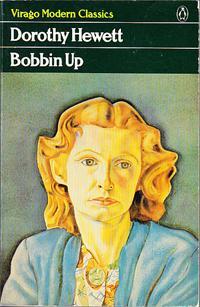 Small Acts of Disappearance
Small Acts of Disappearance by
Fiona Wright
My rating:
4 of 5 stars
The 2016 Stella Prize longlist of a dozen books was announced on 9 February, of which Small Acts of Disappearance - Essays on Hunger was one. I was intrigued by the description of this particular book and delighted to find it available as an e-book through my local public library service.
Anyone who knows me will know that I wrestle with food and weight on a daily basis and wish I had a different body. I am obese and have struggled with my weight since I was about 10 years old. I know obesity is one of the strongest markers for bowel cancer. Due to my genetic heritage I need to get tested for bowel cancer every 2/3 years - a hideous process where you must drink enormous quantities of very salty fluid until you want to puke before undertaking "a procedure" the next day. Fun stuff. Not.
Wouldn't you think I would be motivated to do something about my weight? But no - I eat just about everything that comes in temptation's way. I have very little self-control when it comes to food. So you can understand why I am fascinated about those who suffer from the exact opposite syndrome - who go hungry, who starve themselves to the point of being emaciated (by the way it is very difficult to find an antonym for obesity). Who have control.
Fiona Wright's book is a slim volume (pun kind of intended). Funnily enough, in my reading habits I do not like huge tomes. A bit like movies, I get impatient with anyone who can't get their point across in 2 hours or less. So I was surprised by how quickly I was getting through the book (goody -another finished for the Reading Challenge - measuring measuring attainment attainment) but also surprised by the density of the content, the carefully chosen words and their resonance. This was meaty stuff.
Wright's book is not a definitive text on the issue of eating disorders. Rather, and I think more importantly, it is a reflection on her experience.
Knowing ourselves is one of the greatest challenges of life. Think of how much we dissemble to others (and ourselves) on a daily basis - yes, we are happy, coping, not going mad, pleased to see you, meet you - whatever. And much of this is vital for the smooth workings of society. Good manners and charm are the oil that make the world go round. "Act enthusiastic and you'll be enthusiastic" my mother always intoned to me. And Lord knows, it seems to have served me well all my life.
And yet, what if you feel like the world is out of control, or you are out of control. What can you do?
Wright stops and looks back at the pathology of her illness - looking for clues about how it might have begun, what the triggers might have been. This is not all "Dear Diary" stuff, I hasten to add. Wright informs her reflections with other writing on the topic, scientific, historical and good old literature itself, including writings by Christina Stead, Tim Winton, Dorothy Porter, Carmel Bird and many more. She also analyses the language used by therapists in her treatment - a subject obviously dear to the heart of a wordsmith and a nod to the importance of the "connect" between mind and body.
I won't spoil the book for you by revealing all but here is some of her writing to give you a clue.
"I still want, sometimes, someone or something to take from me the burden of being myself, this burden that I could perhaps only bear, for so many years, through hunger" and "I miss the simplicity of illness sometimes. Because the more acute pain is in trying to get better - and it's a pain that's chronic too - and in stripping away the protection, the insulation, the certainty that my hunger gave me"
Such thought-provoking writing isn't it? I think this would be a great book for book clubs mostly because this is such an important issue - for mothers, for parents, for ourselves as women, for ourselves as members of a society that needs to reflect more on its pathology.
I thank the author for sharing her experience with us, for finding the words for that most difficult of undertakings - self-knowledge - and shining a light for the rest of us who need to unravel our complicated relationship with food; that most basic of needs.
View all my reviews




























